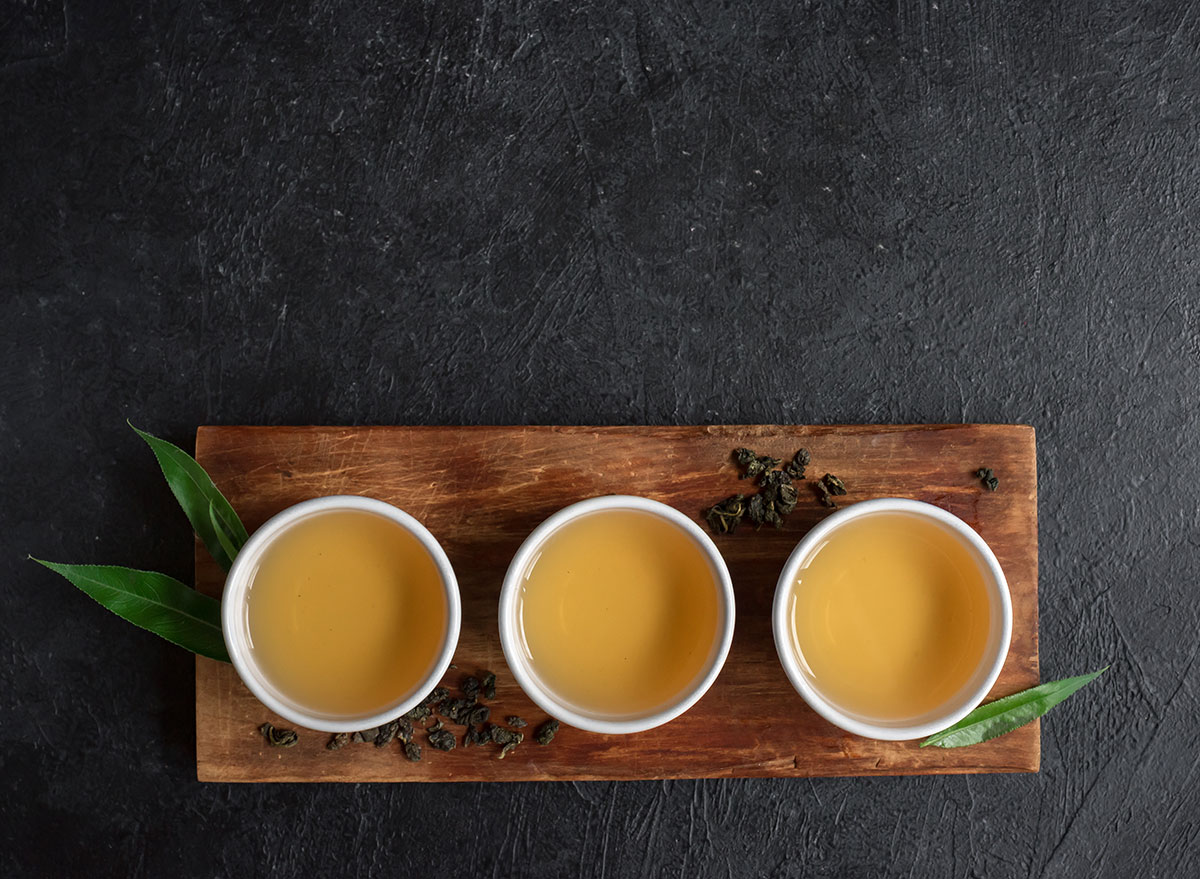Drinking This Tea Can Help You Burn Fat in Your Sleep, Study Shows

When it comes to blasting belly fat, HIIT workouts and intermittent fasting may come to mind first—but what about tea?
New research published in the journal Nutrients reveals that drinking oolong tea may help you scorch fat while you’re sleeping. More specifically, researchers from the University of Tsukuba in Japan found that drinking just two cups of the traditional Chinese tea each day revs up fat-burning processes in the body. (Related: 15 Underrated Weight Loss Tips That Actually Work.)
“Like all teas, oolong contains caffeine, which impacts energy metabolism by increasing our heart rate. However, studies suggest that tea consumption may also increase the breakdown of fat, independent of the effects of caffeine,” senior author of the study, Professor Kumpei Tokuyama, said in a statement.
“We therefore wanted to examine the effects of oolong consumption versus caffeine alone on energy and fat metabolism among a group of healthy volunteers.”
What the researchers found after studying participants for two weeks? Both oolong tea—which is partially oxidized and is neither fully considered a green or black tea, given it displays characteristics of both—and pure caffeine increased fat breakdown by 20% compared to those who took a placebo.
An even more impressive finding is that the positive effects oolong tea had on the body were sustained throughout the night. Oddly enough, neither the group who drank oolong tea or pure caffeine over that two-week period experienced an increase in energy expenditure. This observation suggests that participants may have developed a tolerance to the stimulatory effects of both treatments.
On top of this, there were no noticeable changes in either group’s sleep patterns, or even the time it took for them to fall asleep, despite the fact that both treatments involved caffeine—a known sleep disruptor. Lack of sleep can then also disrupt energy metabolism—a group of processes the body uses to break down food and use it as energy—which can cause weight gain over time. However, oolong didn’t appear to have any negative effects on participants’ sleep.
So, should you consider drinking oolong every day? Professor Tokuyama says that while the effects oolong had on fat breakdown during sleep suggest the tea could help control body weight, it’s unclear if these effects will actually lead to fat loss over a prolonged period of time.
“In addition, we want to trial a decaffeinated oolong tea to better distinguish the effects of caffeine from other components of tea, which will help us understand exactly how oolong helps with fat breakdown,” he said in the statement.
Now, make sure you read up on Side Effects of Drinking Caffeine, According to Science.








